This Week in History recalls memorable and decisive events and personalities of the past.
27th July 1900 – Kaiser Wilhelm II makes a speech comparing Germans to Huns. For years afterwards, ‘Hun’ would be a disparaging name for Germans
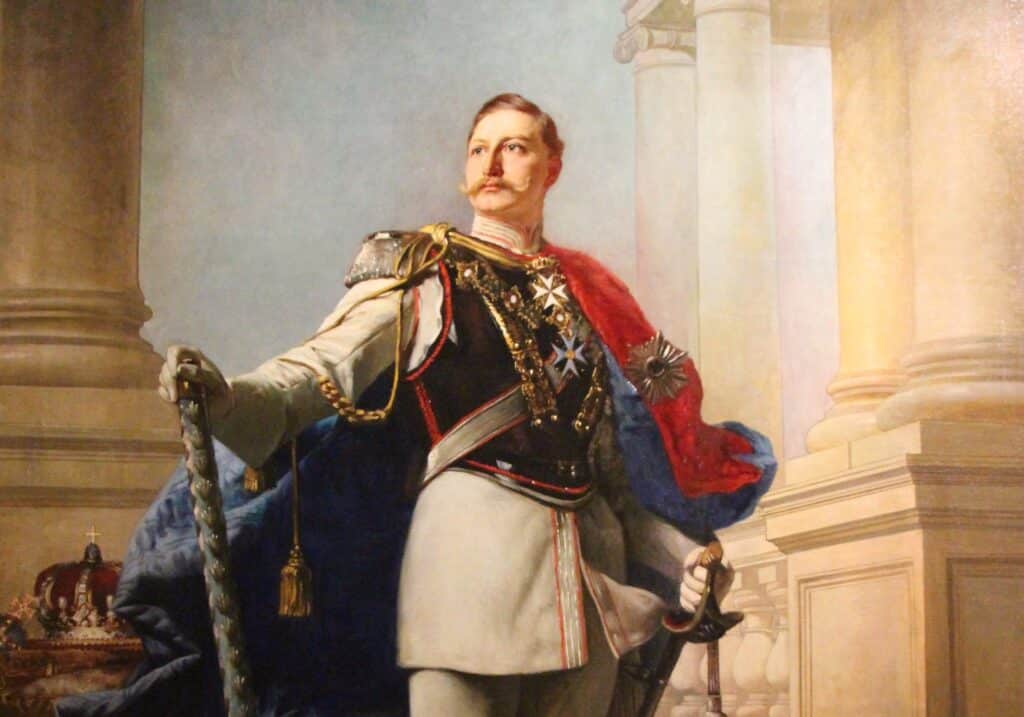
Detail from a portrait of Kaiser Wilhelm II by Max Koner (1890)
Anyone familiar with the history of the First World War, and how British troops in particular referred to the Germans as the ‘Huns’, might assume that this was simply a piece of jingoistic rhetoric derived from comparing the forces of Germany to the 4th Century Steppe people who had ravaged the Roman Empire. In fact, however, the origin of the nickname is more complex.
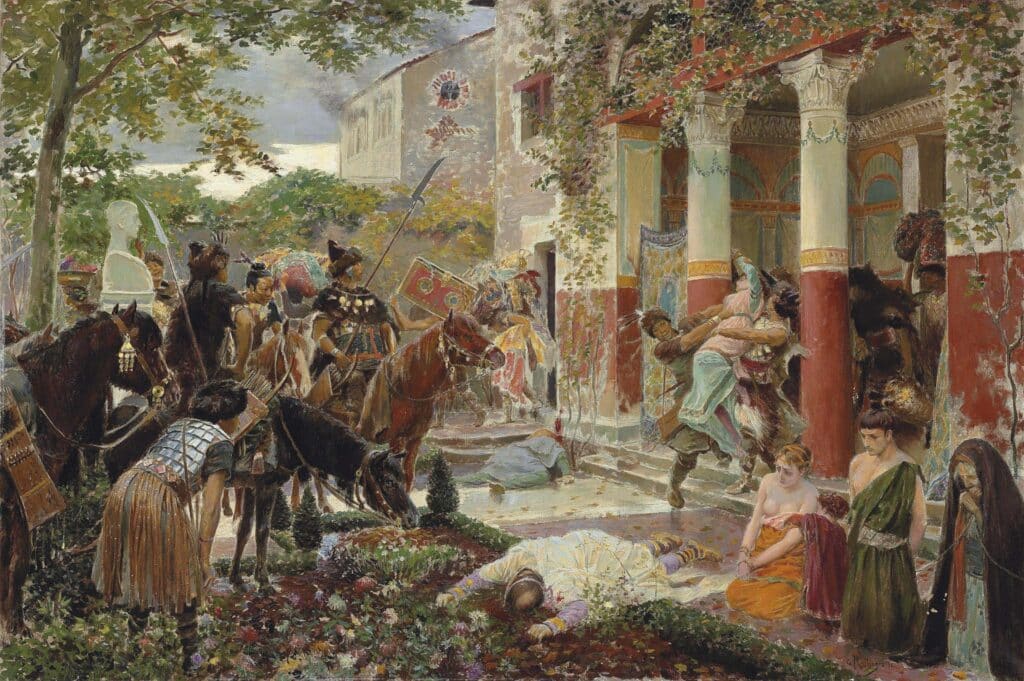
A 1910 Rochegrosse depiction of a Roman villa in Gaul being sacked by the hordes of Attila the Hun
Referring to Germans as Huns is argued by some to trace its origins to a speech given by German Emperor Kaiser Willhelm II on 27 July 1900. During the Boxer Rebellion of 1899-1901, European troops from a variety of nations were sent to China to crush an anti-foreigner rebellion which had besieged Europeans in Beijing.
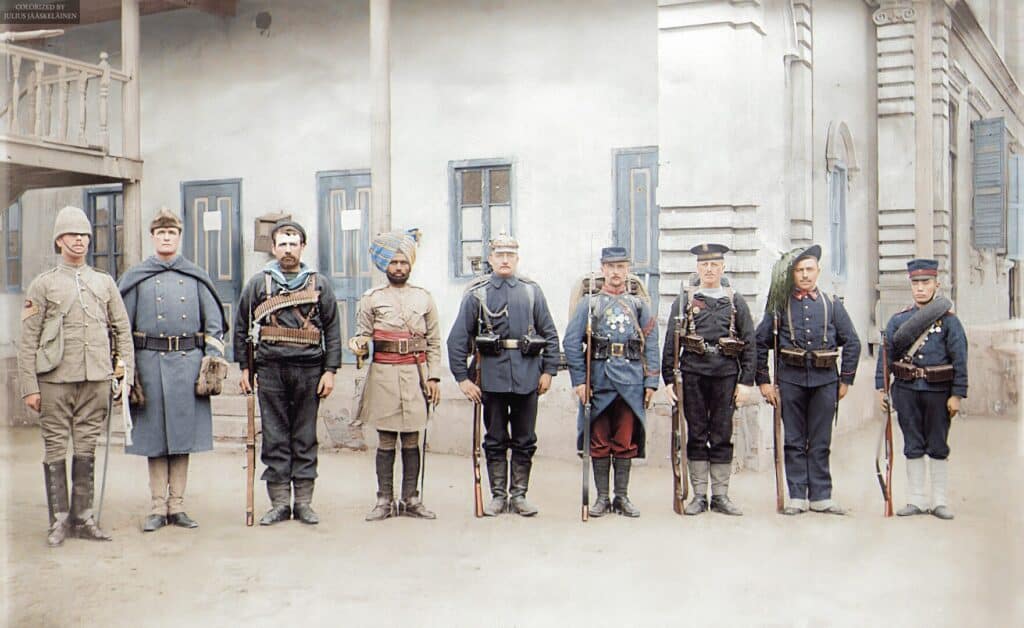
Representative United States, Indian, French, Italian, British, German, Austro-Hungarian and Japanese military and naval personnel in the Allied forces sent to put down the Boxers
Wilhelm was, even for his time, extraordinarily invested in racist ideas, and conceptualised the world as a struggle between racial groups. Throughout his life he would endorse race-war ideas – specifically the idea of the ‘Yellow Peril’, a fear that Asia would simply use great numbers to overwhelm the Western world and destroy Christianity.
In the lead up to the Russo-Japanese War of 1905, Wilhelm would encourage Tsar Nicholas II to go to war against Japan so that he could be the ‘Saviour of the white race’. It was also during his reign that German troops would commit the Herero and Nama genocide in Namibia between 1904 and 1908.
At the end of July in 1900, Kaiser Wilhelm was inspecting troops about to board ships bound for Beijing to fight in the Boxer Rebellion.
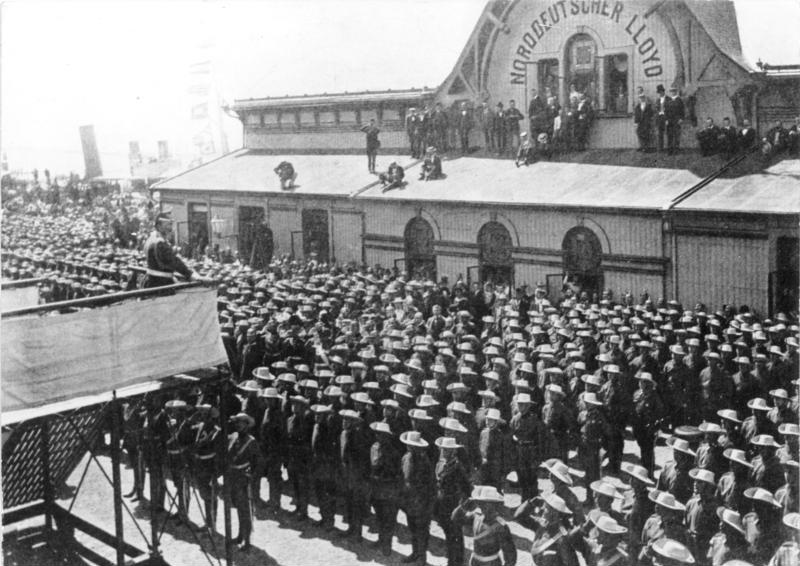
Wilhelm II delivering his speech of 27 July 1900 in Bremerhaven [Bundesarchiv, Bild 183-B0313-0014-067 / CC-BY-SA 3.0, CC BY-SA 3.0 de, https://commons.wikimedia.org/w/index.php?curid=5432269]
After the inspection, he decided to give a farewell address to the men, a speech that infamously contained these words:
‘If you come before the enemy, he will be defeated! No quarter will be given! Prisoners will not be taken! Whoever falls into your hands is forfeited! Just as a thousand years ago the Huns under their king, Etzel, made a name for themselves, one that even today makes them seem mighty in history and legend, so may the name Germany be affirmed by you in such a way in China that no Chinese will ever again dare to look cross-eyed at a German!’
The German troops present took his words quite literally, writing slogans such as ‘no quarter’ on the side of their railway wagons during the campaign.

Japanese woodblock print depicting troops of the Eight-Nation Alliance
The speech was praised by some in Germany and provoked outrage among others, but overseas it came to feature more and more prominently in depictions of Germans in France and the United Kingdom as savage war-mongering brutes.
The idea of Germans as Hunnic barbarians would catch fire globally after the widely reported German atrocities against the population of Belgium in the opening months of the First World War.
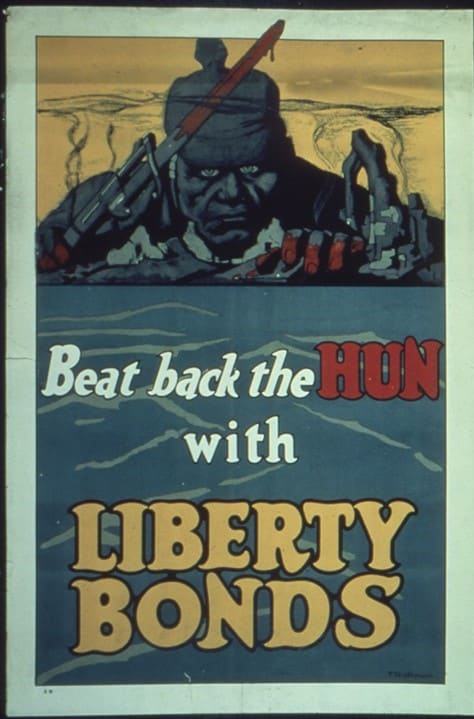
An American First World War fundraising poster
Wilhelm for his part would be overthrown at the end of the war in 1918, having led his country to disaster. He fled into exile in the Netherlands and died there in 1941.

Wilhelm in 1933
After Hitler’s overthrow of the Weimar Republic in 1933, Wilhelm wrote to the Nazi Party leader asking to be restored as German Emperor, but was ignored.
If you like what you have just read, support the Daily Friend

